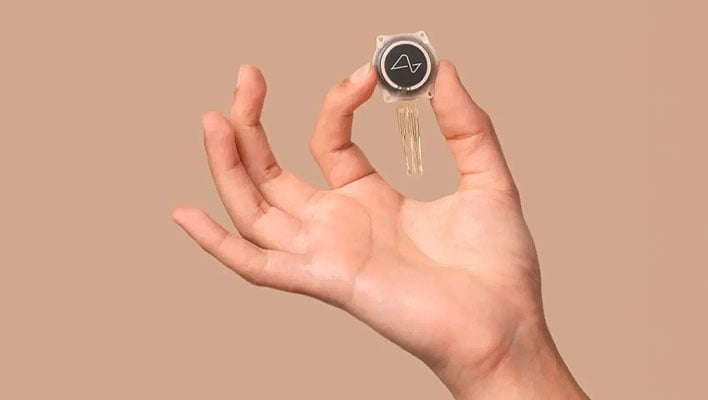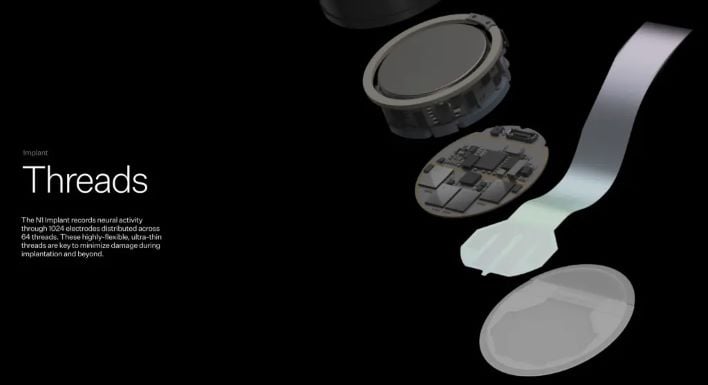Neuralink Details Malfunction In First Human Brain-Chip Implant

In January, Noland Arbaugh made history by being the first human to have a brain-computer interface chip implanted into his noggin (using a robotic surgeon, no less). Arbaugh, among 180,000 other Americans, lives with quadriplegia, where in his case full paralysis from the shoulders down was caused by a diving accident eight years ago.
Presently, people with quadriplegia find it challenging to engage and live in a highly digital society, leading to increased isolation, self-esteem, and financial issues. The problem that Neuralink seeks to solve is to bring digital control back into their lives by enabling them to control external technology with their minds. Yes, trippy.

Neuralink's Link chip contains 1,024 electrodes spread across 64 threads that are used to collect neural activity and movement intentions, and then send that data to the company's computers to process the thought into action. In a recent blog post, the company said that "a number of threads retracted from the [Arbaugh’s] brain, resulting in a net decrease in the number of effective electrodes". The number of affected threads wasn't (and still hasn't been) specified, but the result means that the system's ability to collect brain data has been reduced.
Granted, the company added that to compensate, they "modified the recording algorithm to be more sensitive to neural population signals, improved the techniques to translate these signals into cursor movements, and enhanced the user interface". An interesting side benefit was that the "refinements produced a rapid and sustained improvement in BPS, that has now superseded Noland’s initial performance".
Neuralink, another Elon Musk startup project, also clarified that Arbaugh isn't in any physical danger with the malfunction. In fact, Arbaugh has continued to use the BCI for about eight hours per day during the week and up to ten hours during weekends. Arbaugh praises the tech by saying that it, "has helped me reconnect with the world, my friends, and my family. It's given me the ability to do things on my own again without needing my family at all hours of the day and night.”

